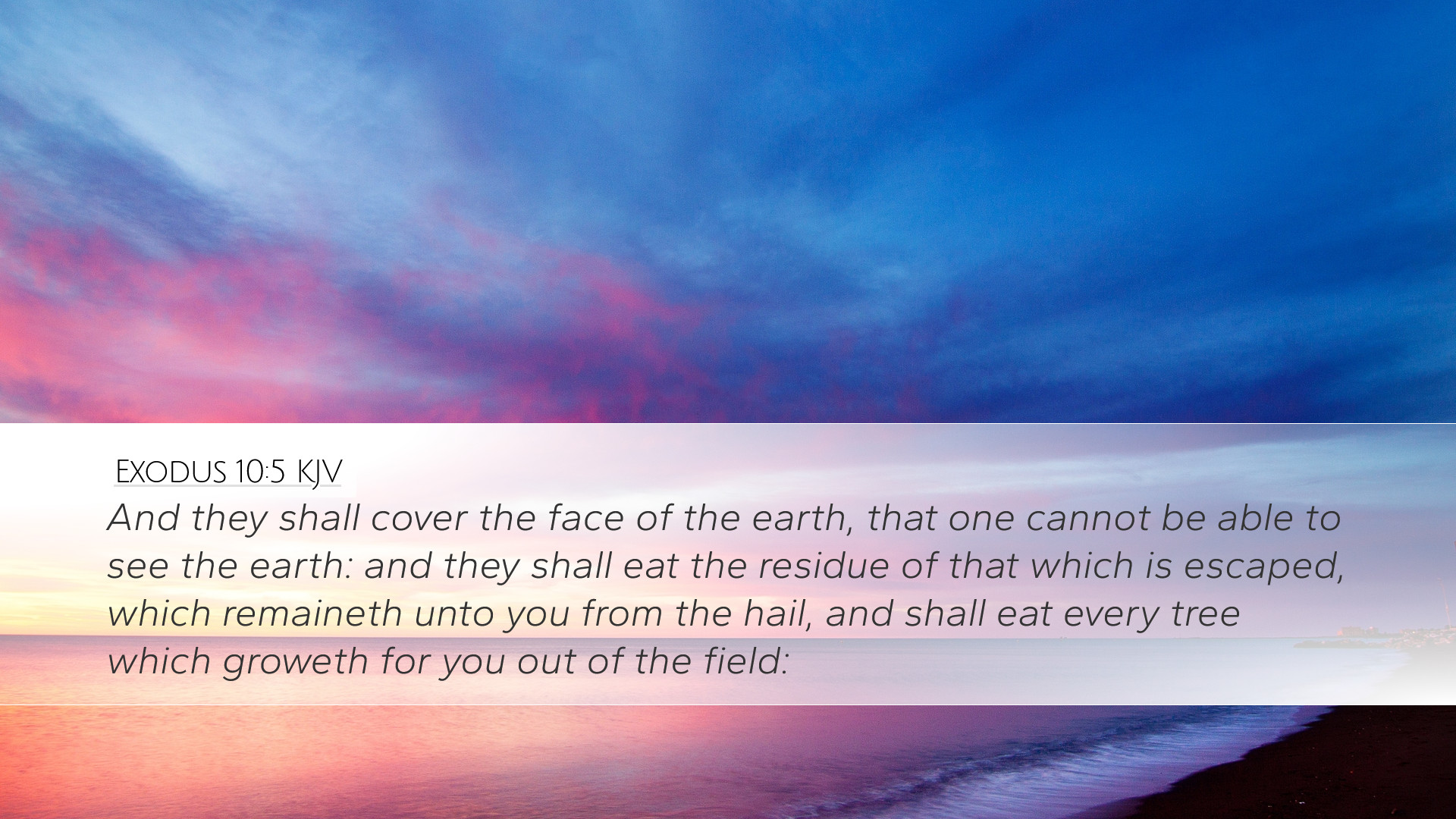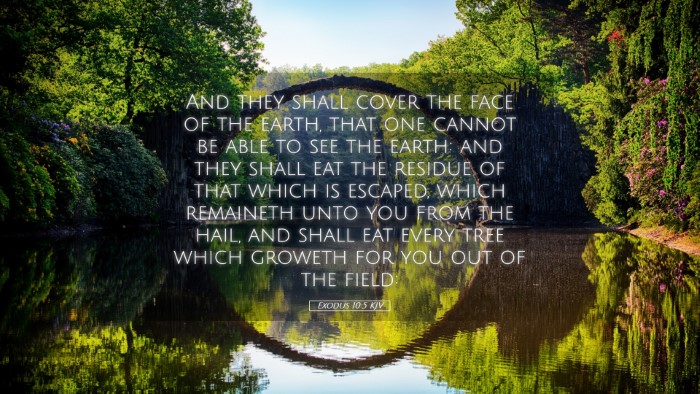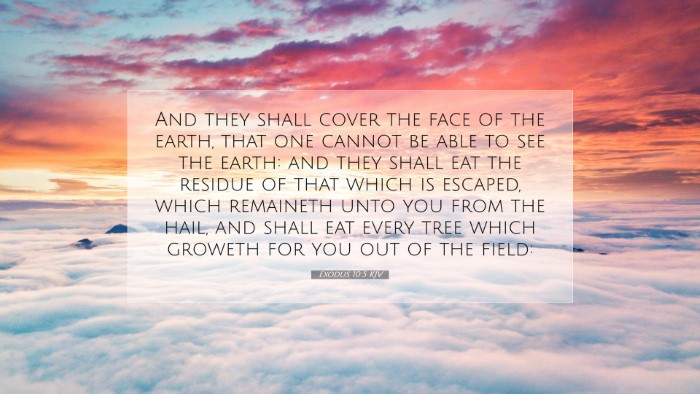Commentary on Exodus 10:5
Exodus 10:5 states: "And they shall cover the face of the earth, that one cannot be able to see the earth: and they shall eat the residue of that which is escaped, which remaineth unto you from the hail, and shall eat every tree which groweth for you out of the field."
This verse is a critical part of the narrative describing the eighth plague of locusts that God brought upon Egypt as a judgment against Pharaoh for his disobedience. It is significant for understanding the various themes present in the Exodus story, including divine judgment, mercy, and the sovereignty of God.
Understanding the Plague of Locusts
The passage dramatically illustrates God's power and the impending devastation of Egypt's agriculture. Commentators highlight several aspects of this verse:
-
Matthew Henry emphasizes that the locusts are a metaphor for destruction. They signify the overwhelming nature of God's judgment, which 'covers the face of the earth' as an unmistakable sign of divine wrath.
-
Albert Barnes notes that the phrase "that one cannot be able to see the earth" speaks to the sheer number of locusts, indicating that God's judgments are not just physical but serve as a spiritual lesson regarding His holiness and the consequences of sin.
-
Adam Clarke adds that the locusts not only destroy what remains after the hail (previous plagues) but emphasize the cumulative effect of God's plagues on Egypt, driving home the point that persistent rebellion against God leads to total destruction.
Theological Implications
This verse serves to illustrate several profound theological implications for believers:
-
Divine Sovereignty: The locusts demonstrate God's absolute control over creation. He commands the locusts, and they obey His will, showcasing the omnipotence of God.
-
Judgment and Mercy: The plagues serve as a means of judgment not just upon Egypt but also as a warning to Israel. They remind God's people of the importance of obedience and faithfulness.
-
Consequences of Sin: The devastation wrought by the locusts underscores the severity of continued unrepentance. It portrays a vivid image of how sin leads to destruction both physically and spiritually.
-
Preparation for Redemption: The judgments can also be seen as preparatory steps leading towards the eventual liberation of Israel. They highlight the need for divine intervention to escape the bondage of sin.
Pastoral Insights
For pastors and church leaders, this verse offers invaluable insights into addressing congregants about obedience and the nature of God's judgments:
-
The necessity of being aware of God's warnings, akin to how Pharaoh was warned repeatedly through the plagues.
-
Teaching congregants about the reality of God's judgment and the importance of repentance. This speaks to the critical role of moral and spiritual integrity within the community.
-
Offering hope and the message of redemption found in the ultimate liberation of Israel, which parallels the New Testament theme of salvation through Jesus Christ.
Conclusion
Exodus 10:5 serves as a chilling reminder of God's powerful judgment while simultaneously affirming His sovereignty over all creation. The insights gleaned from public domain commentaries deepen the understanding of this biblical event as one with rich theological significance, applicable to both ancient Israel and modern believers.
In sum, this verse compels readers to reflect on God's mighty acts in history, understand the seriousness of sin, and recognize the grace provided through repentance and faith.


